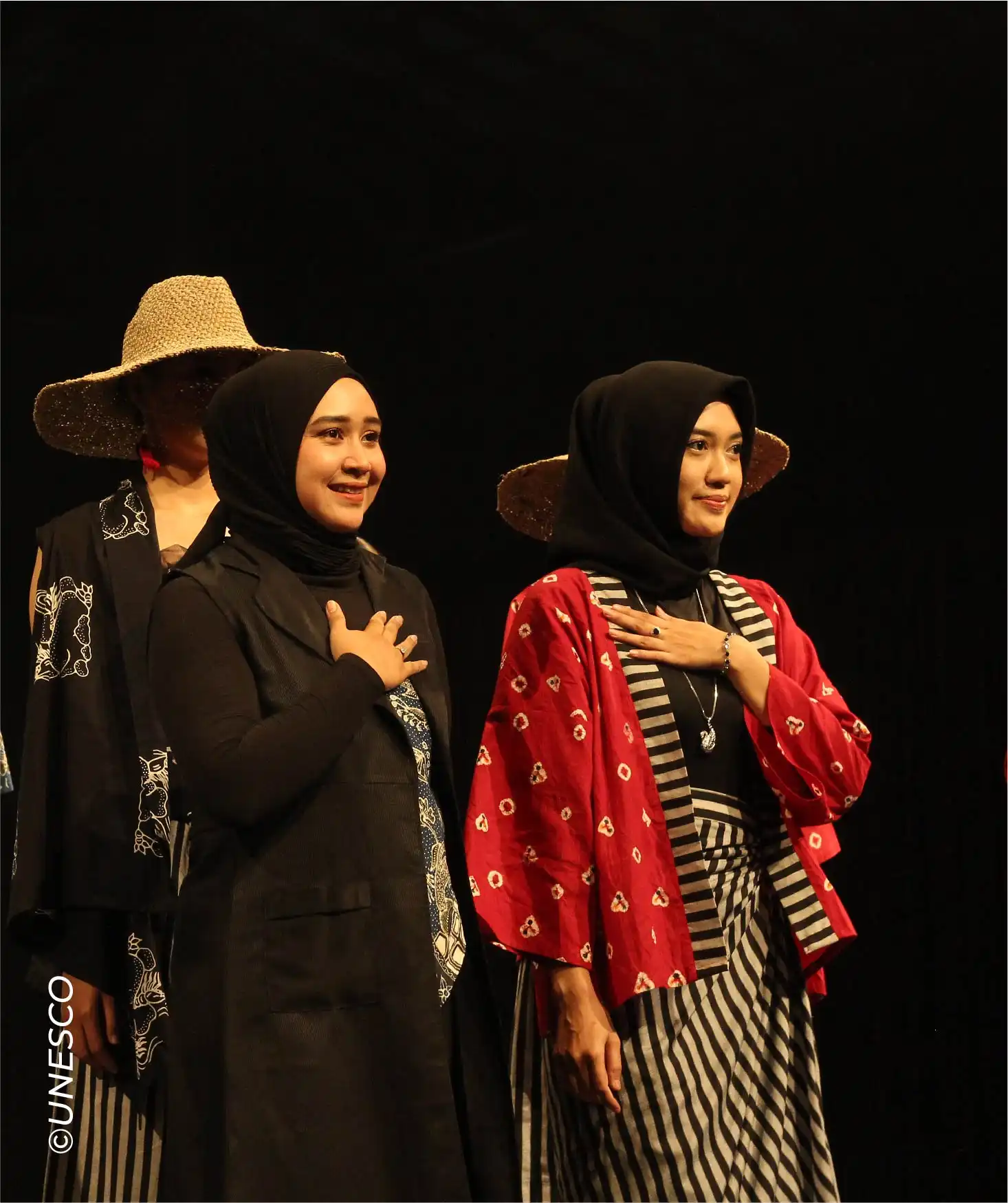United Nations In Indonesia
Country Results Report 2021
Boosting Women in STEM


 Febry Febriani, from Indonesia’s National Research and Innovation Agency, was one of three winners of the L’Oreal-UNESCO Award for Women in Science 2021, selected for her research proposal on tectonic plate crusts that could enable better earthquake risk mapping across Indonesia. She is one of a rapidly growing cohort of Indonesian women excelling in science. In fact, data from Indonesia’s Ministry of Education, Culture, Research, and Technology shows that in 2020, 55% of science, technology, engineering, and mathematics (STEM) graduates—or 265,344 out of a total of 478,888—were women.
Febry Febriani, from Indonesia’s National Research and Innovation Agency, was one of three winners of the L’Oreal-UNESCO Award for Women in Science 2021, selected for her research proposal on tectonic plate crusts that could enable better earthquake risk mapping across Indonesia. She is one of a rapidly growing cohort of Indonesian women excelling in science. In fact, data from Indonesia’s Ministry of Education, Culture, Research, and Technology shows that in 2020, 55% of science, technology, engineering, and mathematics (STEM) graduates—or 265,344 out of a total of 478,888—were women.
Despite Indonesia’s laudable progress on women in STEM at the university level, however, women continue to face challenges in what remains a gendered sector. The UN’s Women in STEM Indonesia Project aims to boost the employment prospects of underprivileged female graduates of vocational schools in STEM- related fields. Through the project, 842 women received training in STEM-related technical skills and of those 126, or about 20% of participants, had either found employment or created a job in the ICT sector by the end of 2021.
The UN also serves as a guest mentor for a four- month incubation program called “Supergirls in Tech” organised by Indonesian digital marketing company BUBU.com for third3rd and fourth4th year female university students. The program focused on financial inclusion, career opportunities, women’s health, and women’s empowerment, the UN assesses participants’ pitches and hosts a workshop on women in leadership.
Glass ceilings can prevent women from climbing corporate ladders even when they excel in STEM. Through a programme called In Business, the UN partners with the Indonesian Business Coalition for Women Empowerment and Samsung to support the transition of mid-career level women in STEM fields into leadership roles. Some 1524 women received support to develop critical soft skills through In Business’ in-company training workshops between 2019 and 2021. The UN also partnered with Indonesia’s Human Resources Research and Development Agency, the Ministry of Communication and Informatics, and CISCO to co-organize a Python Programming training session for 500 women working in ICT.
Women and girls’ engagement in STEM must start early to ensure the sustainability of the sector. In 2021, the UN supported more than 4,700 disadvantaged adolescents from 105 schools in developing 21st century digital skills through an innovative learning programme delivered in partnership with local governments and the private sector. Participating students—58% of them girls—generated more than 1000 ideas for digital solutions to issues such as waste management, suicide prevention, and disability inclusion. Of those, 12 teams of 123 adolescents—64% of them girls—were selected to receive intensive mentoring, before presenting their solutions to a government and private sector audience.
The UN partnered with women-led organisations and engaged female mentors from the private sector to lead elements of the course, which is slated for scale- up in 2022.
Finally, In April 2021, the UN celebrated International Girls in ICT Day in collaboration with several Indonesian government ministries. Among other activities, the UN ran a competition that called on young Indonesians to create multimedia content commemorating the role of girls in ICT as change agents amid the pandemic and disasters.